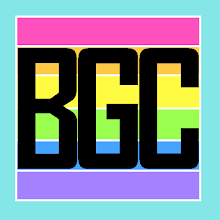
No Going Back by Jonathan Langford was a hard book for me to read. It brought me back all too vividly to my life as a teenage gay Mormon, being torn apart by my religion on one side and my sexual orientation on the other, and all the unpleasantness that entailed. Fifteen-going-on-sixteen-year-old Paul's story is hardly an exact replica of mine--Paul's is much more interesting--but he and teenage me have enough in common that immersing myself in his world was very much like taking a trip back to my youth. I haven't felt so angsty in a long time. Despite that discomfort, or more likely because of it, I found myself not wanting to put the book down. I flew through a year and a half of young Paul's life in less than three days, and would have done so quicker if not for distractions like work and sleep.
I was a little hesitant going into No Going Back because I knew it was written from an orthodox Mormon view of homosexuality--that homosexual feelings are not a sin but homosexual behavior is--and over the past several years I have come to have very strong objections to this point of view (the latter part, not the former). I was happy to find, though, that I don't mind reading fiction written from a perspective opposed to my own, so long as the author doesn't warp his presentation of reality in order to support that viewpoint. Langford's novel is, as a blurb on the back states, a "thoroughly orthodox" Mormon novel in that the main characters remain loyal to orthodox Mormon doctrine, but he places them in a world that rings true to the world I see, where other characters are just as loyal to other beliefs (including several who fall closer to my own), and none of them are portrayed two-dimensionally. Just about every character, from the protagonist to his straight best friend to his mom and the bishop and the members of the high school gay-straight alliance, breathes with the life only an author's love can infuse. I certainly don't get the sense that Langford thinks any less of his non-Mormon characters than his Mormon ones. If anyone is portrayed unsympathetically, it's the members of Paul's priests' quorum who ridicule him for being a "faggot."
An English professor of mine liked to talk about good novels being both a mirror and a window (and I'm sure he got this concept from someone else, but I don't feel like looking it up). As a former gay Mormon teenager, I can safely say that this book does a good job of providing me a mirror--perhaps too well. An added strength of the book, though, is that it does not spend all its time in Paul's head. Much of the narration is devoted to Paul's best friend, his mother, his bishop, and several other characters. I enjoyed the windows this provided me into what it might be like to be a gay kid's straight friend, or to be a gay kid's mother, and so on. And lest we think the world revolves around angsty gay teenagers, each of these characters is developed beyond his or her role in relation to Paul, so we get equally enlightening glimpses into the lives of a woman going through a mid-life crisis, a man trying to balance his various roles, a kid struggling in school. This is what good novels do--they help us better understand ourselves and others.
Every now and then I read something that reflects a part of me so accurately that I want to tell everyone I care about, "Here, read this! You will understand this part of me in ways I'm incapable of making you understand." I had that experience with Alan Rex Mitchell's Angel of the Danube, a novel I read shortly after serving an LDS mission in Europe, when all other portrayals of LDS missionary life I saw were so different from what I'd known. I had the same experience when reading the antepenultimate chapter of Robert Mayer's Superfolks, at a time when I knew few would understand, when I hardly understood my reasons for returning to a heterosexual marriage when there were untapped universes of homosexual relationships to explore. No Going Back doesn't reflect my life as it is now, but it reflects a part of my life--and based on my emotional reaction, a part I still haven't fully recovered from--in such a way that makes me want to shove it in front of everyone I know and insist they read it. I won't actually do that (I've never been very good at proselytizing), but I will say that I think the book is worth your time.





10 comments:
Interesting. I can't imagine what it would have been like for me to read this as a teenager. My guess is that I would never have dared having it in my possession.
Oh, I definitely would have read this as a teenager. I kept to myself a lot and was pretty good at sneaking around--particularly when it came to anything gay-related--so I read all kinds of things that no one ever knew about.
I had the privilege of reading a draft of the novel, and I had to say I was really worried going in to it. I wanted it to not be too preachy on either side. I wanted it to be not super super angst-y (it isn't). Above all, I wanted it to be well written -- especially since Jonathan is someone who I have corresponded with for almost a decade now. It exceeded my expectations.
Of course, now I'm worried about its reception. Obviously, it won't ring true to everyone's experience. And I fear that many "orthodox" Mormons won't touch it.
But I'm glad it spoke to you on some level because it gives me hope that others will give it a chance no matter where they fall on the religio-political spectrum or what personal background they have.
I suspect the book's harshest critics will be gay Mormons and gay former Mormons, as it can't possibly ring true to every single person's experience. I hope, though, that readers will find that the book is true to its characters, as I did.
Ben,
I'm really glad the novel worked for you, especially since (as you said) the approach was basically orthodox.
One of my goals going in was not to demonize anyone (well, with a few exceptions; I don't have much use for Paul's dad, for instance). A really good review, I've found, can make me as an author think about the story in ways that I hadn't before. Your comment about loving the characters did that for me--because yes, I really do love them.
Your comment about including the other characters' plot threads also helped clarify something that I felt during the writing but had a hard time articulating: why, instead of focusing just on Paul's story, I wound up complicating things by bringing in Richard and Sandy's conflicts, Sandy's midlife crisis, Richard's work problems, etc.--especially when I know that some readers find those additional plot threads a distraction. The best I was able to do was say that I wanted to show Paul's situation as part of a normal slice of life. Taking off from what you said, I'd add now that Paul's situation is more real since the people interacting with him are also real--and that life really doesn't revolve around angsty gay teenagers.
I think most of the Mormons who would be offended by this book will never read it, and I'm just as glad about that. I agree with Ben that of those who are likely to read it, the harshest critics will be gay Mormons and (especially) ex-Mormons who may feel that I've painted too rosy a picture.
Another big worry I had was whether the characters might come across as completely unrealistic. I don't think I've ever been as aware of the thoroughly conventionalized way that we present characters as when I was writing this story. We present two minutes worth of dialogue and pretend that it would last ten minutes. We make teenagers both more and less articulate than they really are. We sketch only a few details of lives that are much richer and fuller than anything we can present in a story. With everything being so intrinsically artificial, belief in a fictive world and its characters is, I now think, far more fragile and subjective than we like to admit. If the details we chose to include don't work for a particular reader--poof! The bubble pops, the magic dissolves, and all that's left is (metaphorical) soap suds on the writer's face. If the reader sees the old woman instead of the young girl we meant to show--or worse yet, sees only a random collection of white and dark lines--there's really nothing we can do about it.
Okay, I've gone on way too long. Just shut me up now...
You know, there's some swearing here and there and some frank discussion of sexual matters, but I really didn't feel like this book would be all that offensive to the average Mormon. I think there's a lot of value in having literature that presents an orthodox Mormon perspective while remaining firmly grounded in reality, and I feel like even some of the more conservative Mormons I know could recognize that value. I could imagine, for example, my mom seeing past the swearing and the sex to recognize a story that reflects her values. If I can get her to read it, I'll let you know what she thinks. :)
"Here, read this! You will understand this part of me in ways I'm incapable of making you understand."
Well, you didn't say it quite that way, but I did read "In Quiet Desperation". And it did help me understand a little better, I think, some of the struggles of being a gay mormon. In fact, I've referred a number of people to it.
Of course, I'll never understand it completely--just as few would understand what I've experienced. But I'd be interested in reading this book one day, too.
Your mom just finished reading it and REALLY LIKED IT!
I thought it did an excellent job of opening a window on the feelings and experiences of a boy who happens to be gay AND Mormon. I loved the way the book's characters were used to explain the church's stand on several things (and did an excellent job), not the least of which is repentance and the atonement, as well as gay issues. I also liked that it presented a pretty realistic picture of life!
In reference to 'seeing past the swearing and sex', I was a social worker dealing with drug users and child abuse, so I can’t say that I found it shocking. On the other hand, I’m pretty fussy about the books I read, and I was uncomfortable with a few things - a little more detail than I wanted. Subtle suggestion would have been more to my taste. (Okay, so this is your honest feedback from an ‘Orthodox Mormon’.)
My intent here is not to criticize, when the overall story was so excellent. But I wish there was a slightly edited version, because I would really like to recommend it to the ward youth or to the Relief Society Book Club - the PEOPLE THAT REALLY NEED TO READ IT - and who would otherwise probably love it!
P.S. I forgot to mention how I loved the humor - made me laugh out loud!
SenecaSis: Thanks for reading IQD in an attempt to understand me. :) It's a good book, especially Ty's part. I think you'll also enjoy No Going Back, if you ever get a chance to read it.
TK: Thanks for your thoughts. It's nice to hear another reader's perspective.
Post a Comment